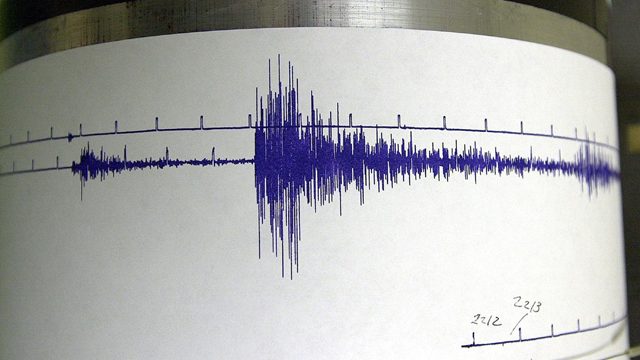Saving water doesn't always mean saving money in parched California. Millions of Californians expecting relief on their water bills for taking conservation measures instead are finding higher rates and drought surcharges.
Water departments are increasing rates and adding fees because they're losing money as their customers conserve. They say they still have to pay for fixed costs including repairing pipelines, customer service and enforcing water restrictions -- and those costs aren't decreasing.
The financial blow is only expected to grow because Gov. Jerry Brown's administration has ordered communities to slash their water use anywhere between 8 and 36 percent compared to 2013 levels in response to the four-year drought. Those cuts are expected to leave agencies with a $1 billion hole in revenue, and they'll likely turn to customers to plug it, according to state estimates.
"Just because you use less water does not mean you have lower rates or a lower bill," said Lori Dolqueist, a water attorney who represents private utilities. "All of these agencies and private water companies are being told to sell less of what they do. It's a challenge financially."
While intensive conservation reduces strains on local water supplies, it can spell trouble for government budgets. Santa Barbara, for example, expects to lose $5 million if residents hit the city's 20 percent water use reduction target. Residents are going above and beyond and reached 37 percent in May. That's good for water supply but bad for financial stability.
This month, water bills in Santa Barbara rose between $13 and $120, depending on water use, to help the city recover lost revenue and activate a desalination plant.
"Our folks are coming in and saying 'Hey, I'm doing everything right, why do I need to pay more?'" said Joshua Haggmark, the city's water resources manager.
California
News from across California
It's not clear precisely how widespread drought-related rate increases are because no government agency or association tracks them.
But agencies across California are reporting they've taken steps to tap customers to offset the losses of conservation. Residents in the San Francisco Bay Area, for example, are seeing higher bills after the region's largest water wholesaler increased the price of water 28 percent to make up for lagging sales.
Others are opting for a clearly labeled temporary drought fee, including the Sacramento suburb of Roseville which raised $1 million in the last year with a 15 percent surcharge on water use. That surcharge, plus the relatively low price of water, left some residents disappointed by their bills after buying low-flow toilets and tearing out their lawns.
Travis Wills, 42, is still paying about $30 a month even after ditching a grassy front lawn for black mulch with sego palms, jasmine and Agapanthus flowers and collecting water from his shower and sink in buckets for plants in his backyard.
"We haven't noticed much of a difference on the bill," said Wills, who runs a home staging company. "That's troubling because they want us to reduce water."
Roseville could double its surcharge if the dry spell deepens, which Wills says he wouldn't mind too much.
"Maybe if they do that, people will stop wasting so much."
Dwindling water supplies during the drought have also driven up bills as agencies turn to more expensive resources. The East Bay Municipal Utility District, serving 1.3 million customers east of San Francisco, is charging the average household an extra $12 a month to pay for tapping water dozens of miles away near Sacramento and conservation programs.
Some water departments are able to weather a drought financially because they designed complicated rates that plan for conservation and cover fixed costs in times of drought. Even without such mechanisms, others manage to avoid rate hikes.
The Desert Water Agency serving Palm Springs was among the fiercest critics of California's mandatory conservation order. It warned regulators it would lose more than $10 million under its 36 percent reduction target.
Instead of increasing its rates, the agency has tapped reserves and cut expenses by delaying needed infrastructure upgrades and implementing a hiring freeze. But residents may end up paying more when the agency sets new rates next year.
"This is a business regardless of what some people think," general manager David Luker said. "When we strangle a business because of political correctness, there are massive consequences, and we still have to pay our bills."



